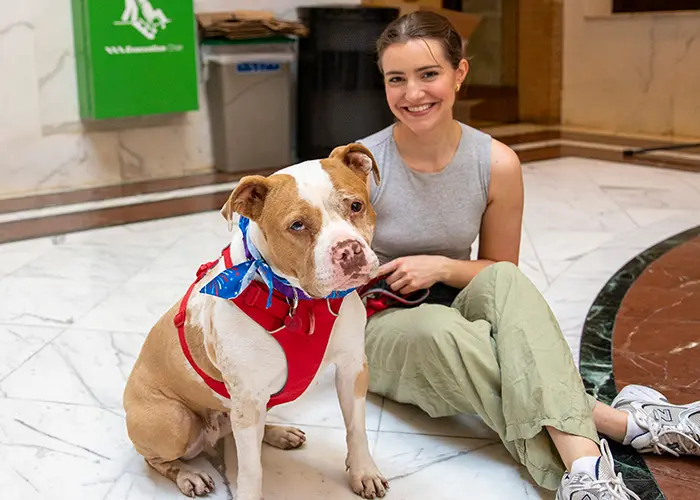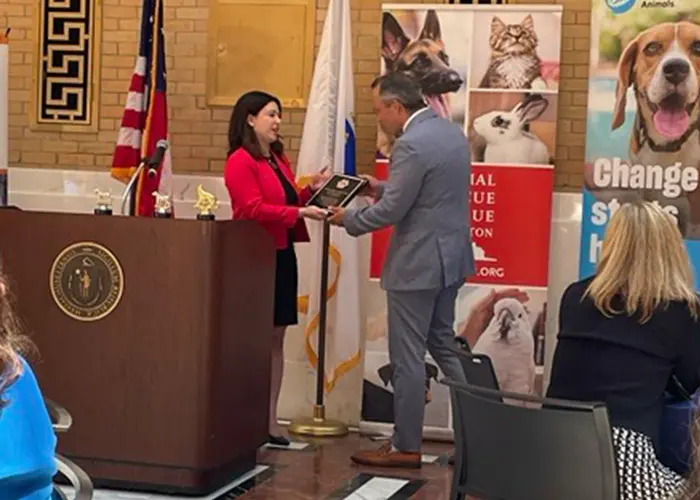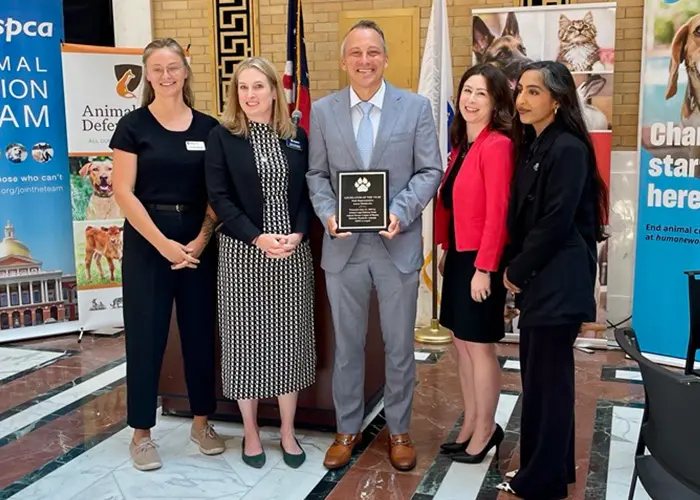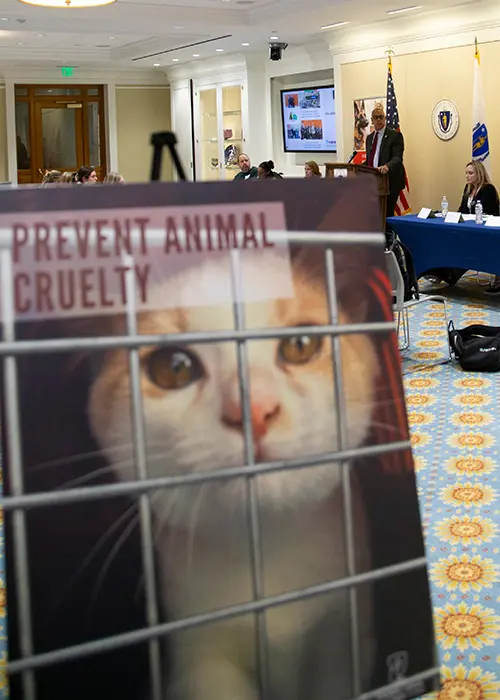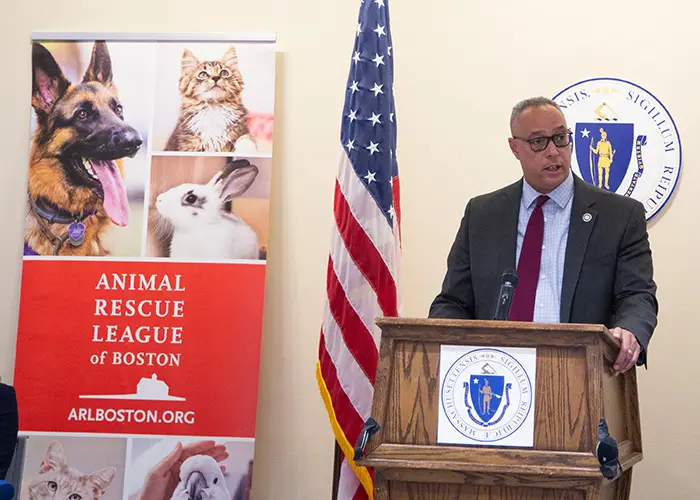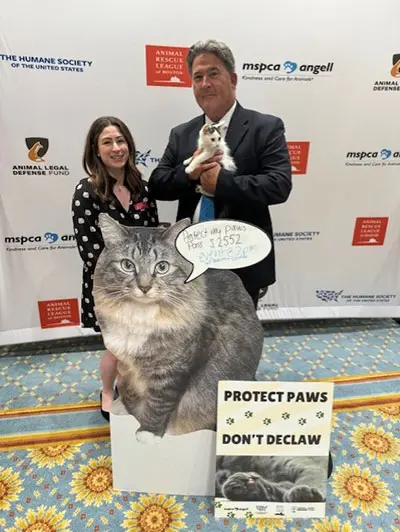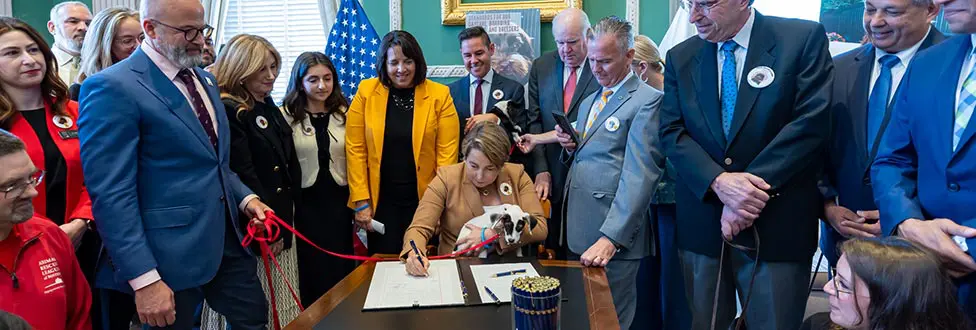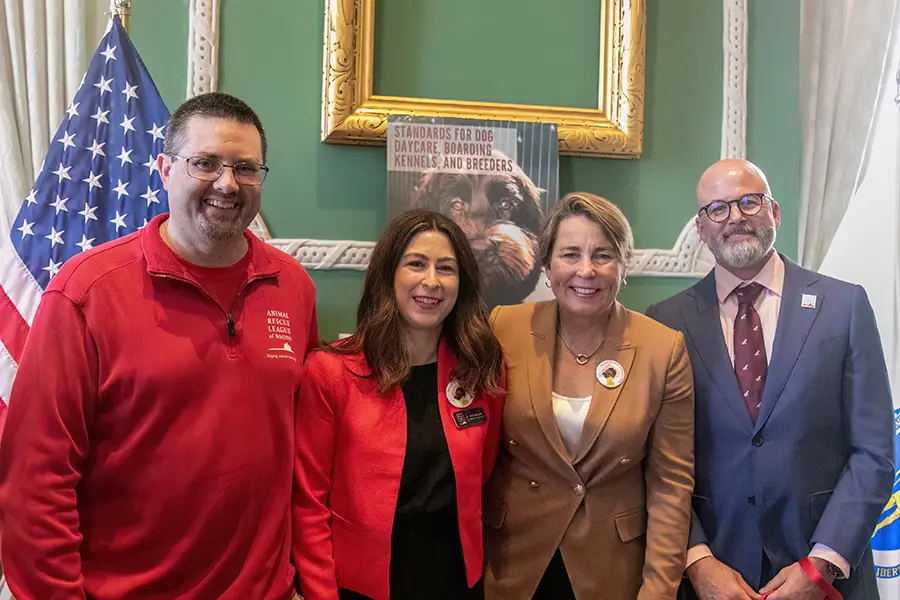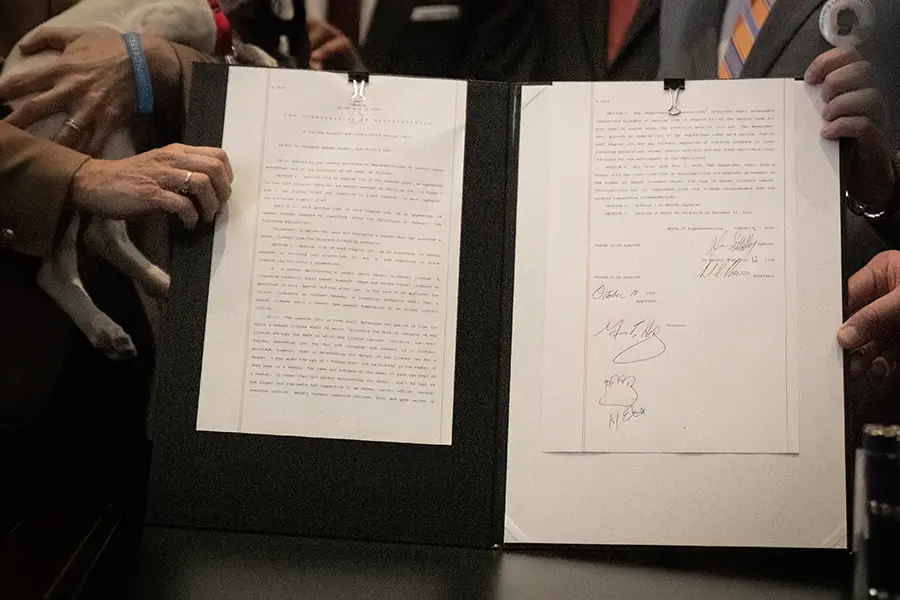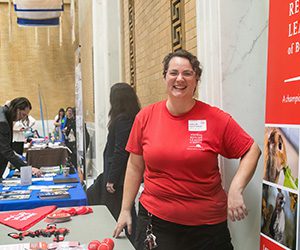ARL, Animal Advocates Gather at Massachusetts State House for Lobby Day for Animals
Animal welfare organizations collaborate to lobby for animal-protection legislation
This past week, the Animal Rescue League of Boston’s Advocacy team joined other animal welfare organizations at the Massachusetts State House for Lobby Day for Animals, to help citizen animal advocates make an impact by meeting and encouraging their elected officials to prioritize animal-protection legislation.
ARL presented briefings on current pieces of legislation and also offered guidance to those in attendance on how to effectively lobby their elected officials to help garner support for these proposed bills.
Priority bills included:
An Act to maintain stable housing for families with pets (H.1559); An Act to maintain stable housing for families with pets in an economic crisis and beyond (S.1022)
Provides housing protections during states of emergency and immediately afterward, preventing animals from being used as a reason for eviction. Prohibits insurance companies from refusing coverage, canceling, or increasing rates on the basis of dog breed.
An Act to codify pet-friendly elderly housing policies and ensure pet parity across housing authorities (H.1476)
Protects programs to allow pets in elderly housing authorities and ensures pets and their families can stay together in certain state-funded housing.
An Act banning the retail sale of dogs, cats, rabbits, and guinea pigs in pet shops (S.618;HD.4490) Proposed bill would prohibit the sale of dogs, cats, and rabbits, and guinea pigs in pet shops throughout Massachusetts. Would not prohibit pet shops from partnering with shelters or rescues to display/facilitate adoptions.
An Act banning the retail sale of dogs, cats, and rabbits in new pet shops (H.967;S.651)
Proposed bill would prohibit the sale of dogs, cats, and rabbits in new pet shops throughout Massachusetts. Would not prohibit pet shops from partnering with shelters or rescues to display/facilitate adoptions.
An Act to provide additional funding for animal welfare and safety programming (S. 639)
This bill would enable additional monies to be directed to the Mass Animal Fund for the purpose of spaying, neutering or vaccinating homeless dogs and cats, or those that live with low-income families, by stipulating that administrative fines, issued pursuant to Section 37 of Chapter 129 (“Enforcement actions; jurisdiction of commissioner of agriculture, district and superior courts”), would go to the Fund.
Celebrating Past Animal Victories
ARL and other animal protection organizations were also pleased to be able to present House Chair of Ways and Means (and ARL’s Representative in the South End) Aaron Michlewitz with the Legislator of the Year Award.
Under Chair Michlewitz’s leadership, the House advanced the most standalone animal bills in any session in recent history!
Recognition was also presented to the numerous legislative sponsors of the bills signed into law earlier this year including An Act to Increase Kennel Safety aka Ollie’s Law; An Act Regulating the Use of Elephants, Big Cats, Primates, Giraffes and Bears in Traveling Exhibits and Shows; An Act Prohibiting Inhumane Feline Declawing; An Act Providing for the Humane Protection of Animals; and An Act Promoting Animal Welfare and Further Regulating the Reporting of Animal Cruelty, Abuse or Neglect.
Learn more about ARL’s Legislative Priorities.




